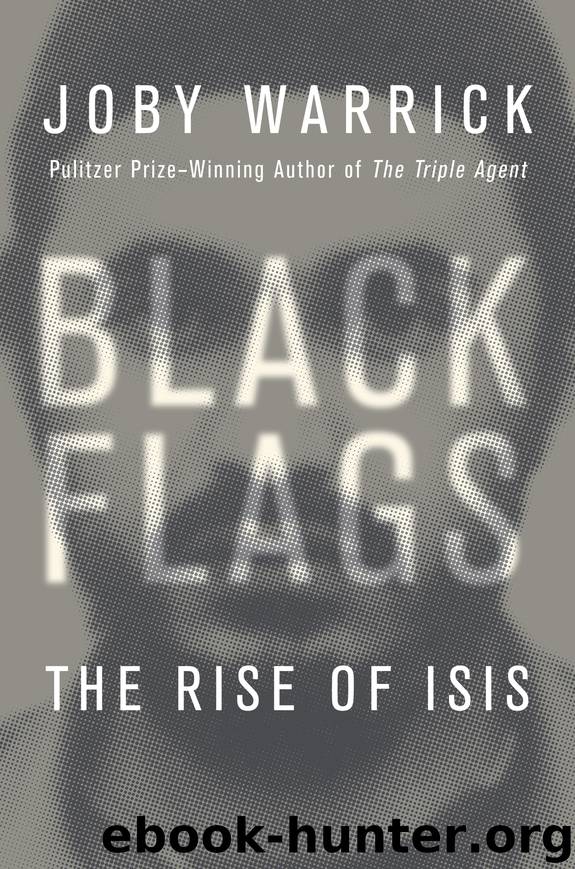Black Flags by Joby Warrick

Author:Joby Warrick
Language: eng
Format: epub, azw3
Publisher: Knopf Doubleday Publishing Group
Published: 2015-09-28T16:00:00+00:00
14
“Are you going to get him?”
Iraq’s historic first vote for a National Assembly was set for January 30, 2005, and Bin Laden, in the same audio statement that welcomed Abu Musab al-Zarqawi into the fold, denounced the polls as sinful. “An apostasy against Allah,” he said. In fact, Zarqawi was already hard at work to ensure that the elections failed. He didn’t have to stop all voting; he needed only to keep enough of Iraq’s Sunnis away from the polls to discredit the results. His campaign to make Iraq unsafe for democracy seemed designed to frustrate the efforts of the U. S. Embassy’s chief political officer, whose impossible mission that winter was persuading Sunni politicians to run for office.
Robert Ford was seeking something that was, in the minds of many of the Iraqis he canvassed, tantamount to a death warrant for them and perhaps their families. It was hard to argue otherwise. Over the past year, Sunni government officials and candidates had been shot, stabbed, kidnapped, blown up at home, and blown up in their cars. Most distressing to Ford were the cases involving Iraqis he had gotten to know personally, like the nervous Anbar governor he met in Ramadi on one of his first trips outside the Green Zone. This man, Karim al-Burjas, a former army general, confided to Ford that he was thinking about quitting his job in fear for his safety. Five days later, gunmen from Zarqawi’s organization attacked his house and kidnapped his three sons, the youngest of whom was only fifteen. Burjas resigned immediately to secure their release. His hastily appointed replacement was forced to double as governor and mayor of Ramadi, because no one in the city wanted the post.
“Local government is in a state of crisis,” Ford’s office wrote in a confidential cable to Washington after the Ramadi visit.
Ford continued his search. As he often did during these months, he paid a visit to the one Iraqi Sunni official who could be counted on for frank, if occasionally harsh, advice. Tariq al-Hashimi was a former army colonel whose English accent and tailored suits betrayed his affinity for the West. He often infuriated other senior Americans at the embassy with his long diatribes about the U.S mishandling of the occupation. But he possessed an agile mind, a strong grasp of Sunni political currents, and fearlessness in expressing his views. Ford listened respectfully, and the two men eventually became friends.
In his thirties, Hashimi had become involved in underground Iraqi politics as part of the Muslim Brotherhood, the conservative religious organization with branches across the Islamic world. He rose to prominence in what became known as the Iraqi Islamic Party, while also pursuing an advanced degree as an economist. After Saddam Hussein’s overthrow, the party emerged by default as the strongest and most organized political faction for Iraqi Sunnis, with Hashimi as its leader. When the Americans scheduled January elections for a National Assembly to draft Iraq’s constitution, Hashimi’s party initially embraced the idea and offered a slate of candidates.
Download
This site does not store any files on its server. We only index and link to content provided by other sites. Please contact the content providers to delete copyright contents if any and email us, we'll remove relevant links or contents immediately.
| Arms Control | Diplomacy |
| Security | Trades & Tariffs |
| Treaties | African |
| Asian | Australian & Oceanian |
| Canadian | Caribbean & Latin American |
| European | Middle Eastern |
| Russian & Former Soviet Union |
The Secret History by Donna Tartt(19034)
The Social Justice Warrior Handbook by Lisa De Pasquale(12183)
Thirteen Reasons Why by Jay Asher(8885)
This Is How You Lose Her by Junot Diaz(6873)
Weapons of Math Destruction by Cathy O'Neil(6261)
Zero to One by Peter Thiel(5783)
Beartown by Fredrik Backman(5734)
The Myth of the Strong Leader by Archie Brown(5495)
The Fire Next Time by James Baldwin(5426)
How Democracies Die by Steven Levitsky & Daniel Ziblatt(5211)
Promise Me, Dad by Joe Biden(5141)
Stone's Rules by Roger Stone(5080)
A Higher Loyalty: Truth, Lies, and Leadership by James Comey(4947)
100 Deadly Skills by Clint Emerson(4915)
Rise and Kill First by Ronen Bergman(4776)
Secrecy World by Jake Bernstein(4739)
The David Icke Guide to the Global Conspiracy (and how to end it) by David Icke(4697)
The Farm by Tom Rob Smith(4501)
The Doomsday Machine by Daniel Ellsberg(4482)
